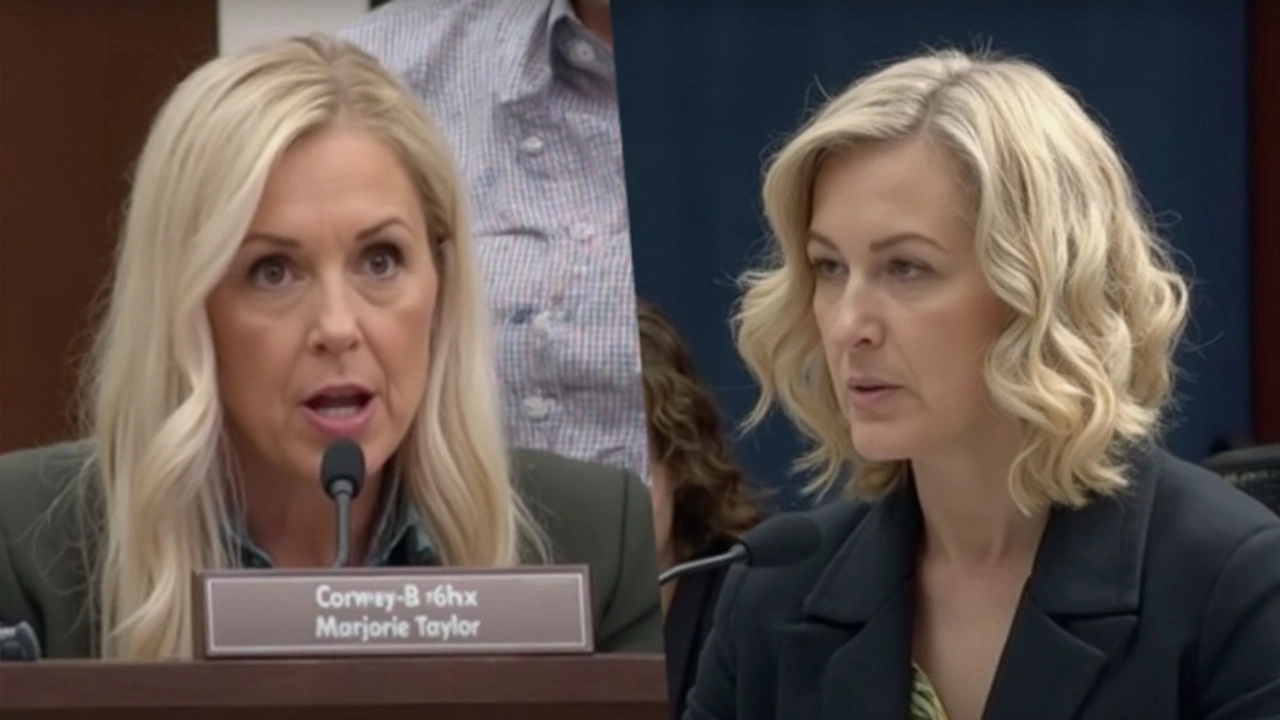NPR and PBS Face Intense Scrutiny in House DOGE Subcommittee Hearing
On March 26, 2025, a fiery debate unfolded as Rep. Marjorie Taylor Greene, chairing the House DOGE subcommittee, went head-to-head with NPR CEO Katherine Maher. The charged atmosphere, thick with accusations and retorts, highlighted deep-seated political tensions. Greene, known for her controversial stance against mainstream media, accused Maher of wielding NPR as a tool for left-wing ideologies. She skillfully cited Maher's past critical comments about former President Donald Trump, particularly where Maher described Trump as a 'deranged racist and sociopath'. In Greene's eyes, such remarks exemplify the alleged bias fueling NPR's content. Furthermore, Greene's challenge extended to the language used by NPR, criticizing their approach to gender-related terminology she deemed exclusionary.
Katherine Maher deftly navigated the confrontation by admitting to missteps, particularly surrounding NPR's controversial decision during the 2020 election. Maher conceded that dismissing the Hunter Biden laptop story was indeed a mistake, an instance of bias that had, according to her, led to new editorial safeguards to prevent future lapses.
PBS Under Fire, Democrats Turn to Satire
While NPR was in the hot seat, PBS wasn't spared the scrutiny. Paula Kerger, the CEO of PBS, was grilled over programming choices, notably the documentary 'Real Boy', which follows the journey of a transgender teen. Criticism stemmed from Republican accusations of promoting what they termed 'trans child abuse.' But the hearing wasn't without its lighter moments, as Democrats skewered the questioning with references to 'Sesame Street', suggesting the criticisms were a misplaced attack on public media.
Adding fuel to the argument, former NPR editor Uri Berliner surfaced revelations of an alleged ideological tilt within the organization. Data from 2021 indicating a stark imbalance—87 Democrats to zero Republicans—was presented as supposed evidence of NPR's internal bias.
Greene ended the session with a provocative assertion: 'We believe that you can hate us on your own dime.' This parting shot may hint at future efforts to strip federal funding from NPR and PBS, aligning with Trump's previously articulated stance to defund these organizations. This debate underscores the cultural and political battles being waged over the airwaves, drawing lines that seem more entrenched each passing year.
